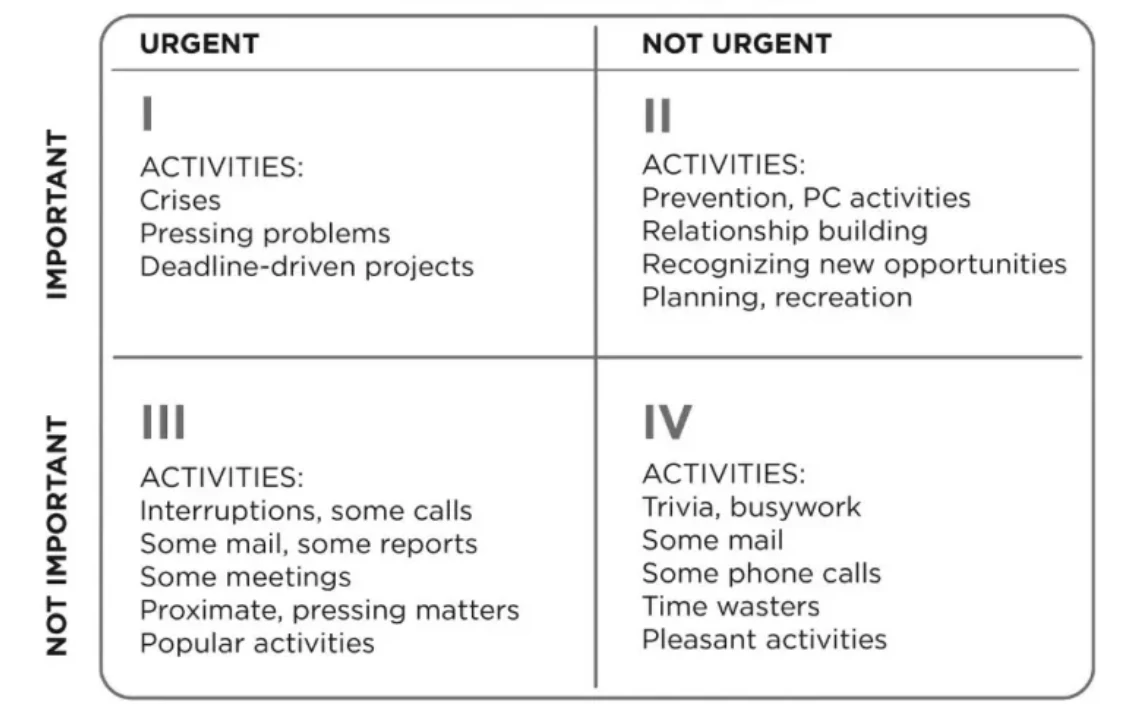Managing Priorities with the Eisenhower Matrix
The Eisenhower Matrix is a straightforward and popular time management tool that I was first introduced to in The 7 Habits of Highly Effective People1, written by Stephen Covey, many years ago. It can help you get organized and execute around priorities.
When you categorize your activities into four quadrants, with the help of the matrix, you can quickly identify what you should prioritize first. Let’s take a look at the matrix:

As you can see, the two factors that define an activity are urgent and important. Urgent means that the activity requires immediate attention. They are usually visible and press on us. Importance has to do with results; if the activity is important to you, it contributes to your mission, values, and high-priority goals.
We react to urgent matters, but important matters require initiative and proactivity!
The quadrants can be read as follows:
- Urgent and important: This quadrant deals with significant results that require immediate attention;
- Important but not urgent: This quadrant is the heart of effective personal management. It deals with important, but not urgent, activities;
- Urgent but not important: This quadrant deals with urgent activities that are usually a priority for someone else, not for you;
- Not urgent and not important: It is usually stuff that is pleasant to do but has no significance.
It is important to take into consideration that:
- People who spend most of their time in quadrant I live by crisis. This quadrant dominates them. If you are there, you should consider how to shrink quadrant I and move to quadrant II, where you are more effective;
- Effective people avoid quadrants III and IV. You should consider delegating quadrant III activities when possible. Avoid quadrant IV activities altogether; this should be your “do not do” list.
-
As far as I understand, the matrix was created by Stephen Covey. He refers to it as The Time Management Matrix, however. The matrix is widely known as the Eisenhower Matrix, in honor of USA 34th President, Dwight D. Eisenhower, but I don’t know by whom and when the matrix was named the Eisenhower Matrix. ↩
